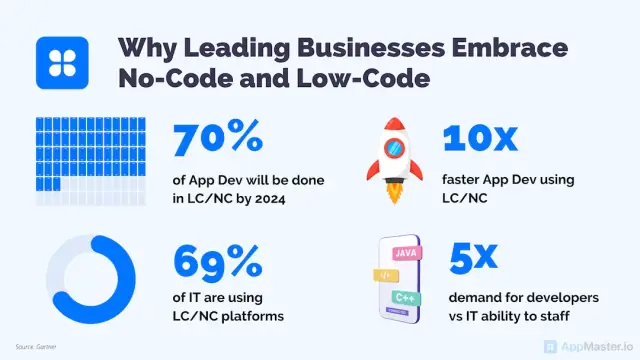The Lean Startup Methodology: Benefits and Real-World Examples
Discover the benefits of the Lean Startup Methodology, its core principles and techniques, along with real-world examples to help you achieve success in launching your new business venture.

Understanding the Lean Startup Methodology
In today's fast-paced and highly competitive business environment, startups face unique challenges that can make or break their success. Traditional business approaches often involve lengthy planning, extensive market research, and large financial investments, which can hinder innovation and limit agility. This is where the lean startup methodology steps in as a game-changer, revolutionizing the way entrepreneurs approach building and scaling their businesses.
The lean startup methodology, popularized by Eric Ries, is a proven approach that embraces a systematic, iterative process focused on rapid experimentation and continuous learning. By encouraging startups to build, measure, and learn in a lean and efficient manner, this methodology enables entrepreneurs to navigate the uncertainties of business with confidence. It challenges the traditional notion of extensive planning and instead emphasizes the importance of taking small, calculated steps to test assumptions and gather real-world insights.
By emphasizing the importance of validating ideas through real-world feedback, lean startups can minimize risks, optimize resources, and maximize their chances of creating scalable and sustainable businesses.
Benefits of Implementing the Lean Startup Methodology
The Lean Startup Methodology offers a range of benefits that can help businesses accelerate growth, mitigate risks, and achieve market fit. Some of the key advantages include:
- Faster Time to Market: By focusing on building a Minimum Viable Product (MVP) and constantly iterating based on customer feedback, the Lean Startup Methodology enables businesses to reach the market faster with a product that addresses real user needs. This quick market entry allows companies to capitalize on emerging opportunities and gain a competitive advantage.
- Reduced Risk: The Lean Startup Methodology prioritizes learning and validation, which helps businesses make data-driven decisions and minimize the risks associated with launching a new product or venture. By rapidly testing hypotheses through experimentation and customer feedback, companies can avoid wasting resources on unproven ideas and pivot when necessary to align with market demands.
- Cost-effective Development: The Build-Measure-Learn feedback loop emphasizes minimizing waste and maximizing efficiency when developing products. This approach allows businesses to allocate resources more strategically and minimize upfront costs by investing only in the features and functionality that have been validated by real users.
- Improved Agility: The Lean Startup Methodology fosters a culture of innovation and adaptability within the organization. By embracing experimentation, iteration, and learning, companies can quickly respond to market changes and customer needs, ensuring their products and business models remain relevant and competitive.
- Data-driven Decision-making: By using metrics-driven experimentation and customer validation, businesses can make better-informed decisions about product development, marketing, and resource allocation. This data-driven approach allows companies to optimize their strategies based on real user feedback and market performance.
- Alignment of Business and Customer Needs: The Lean Startup Methodology is built around addressing unmet customer needs and solving real problems. By maintaining a relentless focus on the customer, businesses can ensure their products and services are aligned with market demand, thereby increasing the likelihood of success and sustainability.
Real-World Examples of Lean Startup Successes
The Lean Startup Methodology has been applied by numerous successful companies across various industries, demonstrating its versatility and effectiveness in achieving positive business outcomes. Here are just a few examples of businesses that have implemented Lean Startup principles to great effect:
Dropbox
The cloud storage company started by building a video demo of its Minimum Viable Product (MVP) to see if potential users would be interested in the service. This initial demo garnered impressive traction and allowed Dropbox to gather valuable feedback before investing in full-scale development. Today, Dropbox is a multi-billion dollar company with millions of users around the world.
Airbnb
The home-sharing platform initially began as a simple website to help founders Brian Chesky and Joe Gebbia rent out air mattresses in their San Francisco apartment. By continually iterating on their MVP and integrating customer feedback, Airbnb evolved into a global marketplace that now accommodates over 4 million property listings in more than 190 countries.
Uber
When Uber first entered the market, it focused on offering private car services to a limited user base. The company launched an MVP consisting of just an SMS-based service and an iPhone app. By responding to user feedback, they were able to make improvements to their offerings and gradually expand to other services like UberX, UberPOOL, and UberEATS. Today, Uber is the leading ride-hailing platform with a presence in over 900 cities worldwide.
Spotify
The streaming service began as an MVP with a small catalog of music available only in Scandinavia. By adopting lean startup principles and iterating on their product based on user feedback, Spotify was able to grow its offerings, expand to new markets, and become one of the top music streaming services globally, boasting over 345 million monthly active users.
Integrating the Lean Startup Methodology with Appmaster.io
When implementing the Lean Startup Methodology, businesses must focus on developing, testing, and iterating on their product or service as quickly and efficiently as possible. This is where AppMaster.io, a powerful no-code platform, can become an invaluable tool in the Lean Startup process.
AppMaster.io allows users to visually create backend, web, and mobile applications without any coding knowledge. By using AppMaster.io, companies can significantly reduce development costs and time, allowing them to focus on what matters most—their customers. Some of the key benefits of leveraging AppMaster.io in the context of the Lean Startup Methodology include:
- Quick MVP Development: AppMaster.io's visual drag-and-drop environment enables businesses to quickly create an MVP without the need for extensive development resources. This rapid prototyping capability can help businesses test their ideas and gather customer feedback sooner, facilitating efficient iteration and validation.
- Reduced Technical Debt: As a no-code platform, AppMaster.io generates applications from scratch whenever requirements are modified, eliminating technical debt and ensuring optimal performance throughout the development process.
- Data-driven Decision-making: AppMaster.io integrates seamlessly with various analytics and user engagement tools, allowing businesses to gain actionable insights and make informed decisions about their product development and strategy.
- Seamless Integration with Existing Systems: AppMaster.io connects easily with various third-party services and APIs, enabling businesses to integrate their newly built applications with existing systems effortlessly.
- Scalable for Enterprise and Highload Use-Cases: With its stateless backend applications generated using Go (golang), AppMaster.io offers impressive scalability, making it suitable for enterprises and highload scenarios.

By integrating the Lean Startup Methodology with AppMaster.io, businesses can ensure they're well-equipped to take their ideas from inception to success with minimal waste, faster time-to-market, and a customer-centric approach all while maximizing value creation and innovation.
Overcoming Challenges in Lean Startup Implementation
As with any strategic approach, implementing the Lean Startup methodology can come with its challenges. By addressing these challenges proactively, your business can maximize the benefits and ensure a seamless transition towards more efficient innovation processes. Some common challenges include:
Resistance to Change
Resistance to change is a common barrier in implementing Lean Startup principles. Both employees and stakeholders may be reluctant to adopt new strategies or processes that significantly deviate from traditional approaches. To overcome this challenge, it's vital to communicate the benefits and align the whole organization with the mindset shift. Organizational buy-in can be achieved through ongoing education, training, and sharing success stories to demonstrate the value of this new approach.
Difficulty in Measuring Qualitative Data
Lean Startup relies on qualitative data to validate assumptions and test hypotheses. However, capturing, analyzing, and acting upon qualitative data can be more challenging than quantitative metrics. To address this, businesses should establish a clear framework for gathering qualitative data and connecting it with quantitative metrics. This includes conducting customer interviews, collecting and analyzing feedback, and using data to facilitate informed decision-making.
Balance Between Experimentation and Execution
Finding the right balance between experimentation and execution is crucial for Lean Startup success. While the methodology promotes experimentation, companies must also stay focused on delivering value to customers. Ongoing communication and transparency are essential, ensuring that every stakeholder is aware of progress, and that experiments are designed with clear goals in mind.
Finding the Right Metrics to Validate Learning
The selection of appropriate metrics for validating hypotheses can prove challenging. Companies must remember that not all metrics are created equal. Focusing on vanity metrics that don't directly inform decision-making can lead to misinformed decisions. Instead, businesses should identify actionable metrics that correlate with customer value and contribute to driving growth.
Establishing a Culture of Continuous Improvement
A culture of continuous improvement and innovation is necessary for Lean Startup success. This requires fostering a company mindset that embraces change, experimentation, and learning from failures. Recognizing and rewarding innovation efforts, conducting regular retrospectives, and encouraging collaboration across teams can help create an environment where the Lean Startup methodology can thrive.
Conclusion: Is Lean Startup Right for Your Business?
Implementing the Lean Startup methodology can lead to several benefits, including improved time-to-market, resource optimization, and a more customer-centric approach to business. The numerous real-world success stories are a testament to its effective application in various industries and contexts. However, adopting the Lean Startup methodology is not a one-size-fits-all decision. To determine if it's the right approach for your business, consider the alignment with your company's objectives, culture, and innovation needs. In many cases, the Lean Startup approach can synergize with existing practices, providing a valuable complement to other strategic initiatives.
Integrating the Lean Startup methodology with no-code platforms, like AppMaster, can further accelerate innovation, allowing businesses to quickly develop, test, and iterate on MVPs without massive investments in time and resources. By embracing this methodology and leveraging the power of no-code platforms, businesses can become more agile, swiftly adapt to customer needs, and ultimately achieve sustainable growth in today's fast-paced market environment.
FAQ
The Lean Startup Methodology is an approach to building, launching, and scaling new business ventures or products by focusing on reducing waste and rapidly iterating through customer feedback to achieve market fit.
The core principles of the Lean Startup Methodology are Empiricism, Entrepreneurship Management, Validated Learning, Build-Measure-Learn feedback loop, and Innovation Accounting.
Some key techniques for implementing the Lean Startup Methodology include Minimum Viable Product (MVP), Continuous Deployment, Customer Development, A/B testing, and Metrics driven decision-making.
The main benefits of the Lean Startup Methodology include faster time to market, reduced risk, cost-effective development, improved agility, data-driven decision-making, and the alignment of business and customer needs.
Yes, you can integrate the Lean Startup Methodology with AppMaster.io, as the no-code platform allows you to quickly build, prototype, and iterate on your ideas while keeping costs low and avoiding technical debt.
The Lean Startup Methodology is suitable for businesses of any size in any industry, as it's a flexible approach designed to streamline the process of building, launching, and scaling new products or ventures, regardless of the specific circumstances or resources.
Yes, the Lean Startup Methodology can work for established businesses looking to launch new products or services or explore new market opportunities, as it emphasizes agility, learning, and adaptation to changing market conditions.
Real-world examples of Lean startup successes include Dropbox, Airbnb, Uber, and Spotify, among others. These companies have used the principles and techniques of the Lean Startup Methodology to build and scale their businesses efficiently.






